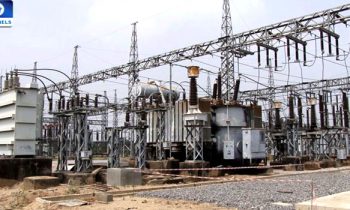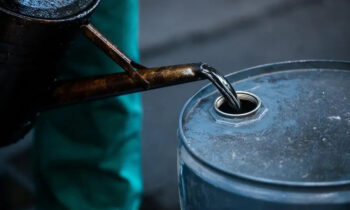Why We State Our Position on Recently Increased Price of AGO—MAN
The Manufacturers Association of Nigeria (MAN) is the voice of manufacturers in Nigeria and the leading Business Membership Organization in West Africa and the African Continent. The Association represents the interests of over 3,000 manufacturers (small; medium; large and multinational industries) spread across 10 sectors, 76 sub-sectors and 16 industrial zones and currently leading the Federation of West African Manufacturers Association and Pan African Manufacturers Association. Manufacturers are heavy users of electricity in Nigeria and this naturally necessitates our keen interest in all electricity and alternative energy supply related discourse and development.
The manufacturing sector in Nigeria employs over 5 million workers, directly and indirectly with 8.46% contribution to Gross Domestic Product. The sector also dominates export trade in the West African region, generate foreign exchange, contributes substantially to revenue of Government and human capital development in Nigeria. It is therefore imperative that manufacturing be given priority attention and safe guarded against steep deadline. This should be backed with comprehensive and integrated support system during times of crisis. Its performance should be enhanced through a pro-manufacturing policy that will encourage scale and lower unit cost of production.
Over the years, the manufacturing sector has been battered by numerous familiar challenges that have plummeted the number of industries in Nigeria and converted industrial hubs in many parts of the country to warehouses of imported goods and event centres. Top on the list of challenges confronting the sector is high operating cost environment occasioned largely by inadequate electricity supply and the high cost of alternative sources, excessive regulation and taxation, and inadequate supply of foreign exchange for importation of raw materials, spare parts and machinery that are locally available. All these have culminated into the lacklustre performance of the sector.
2.0 THE RECENT OVER 200% INCREASE IN THE PRICE OF AGO
Global events have shown that the world is like a village. The emergence of a challenge in one country can become a major constraint with spiral effects for the world. Often times when disruption occurs in any part of the global economy, only countries with functional institutions and strong internal economic mechanisms will be able to respond appropriately to such external shocks.
The current increase in prices of crude oil and other refined petroleum products such diesel is one of such disruptions occasioned by external shocks that confirms the interwovenness of economies in the world. No doubt, the recent short supply and over 200% increase in the price of AGO are part of the backlashes from the ongoing invasion of Ukraine by Russia. This resulted in numerous economic sanctions on Russia by the US and EU, which propped up the price of crude oil to $120 per barrel (now moderated to about $100) as Russia oil export is isolated.
3.0 MANUFACTURERS’ CONCERNS
The Manufacturers Association of Nigeria is greatly concerned about the implications of the over 200% increase in the price of AGO on the Nigerian economy and the manufacturing sector. More worrisome is the deafening silence from the public sector as regards the plight of manufacturers. Four obvious questions that readily come to mind that are seriously begging for answers are- What can we do as a nation to strengthen our economic absorbers from external shocks? Should manufacturing companies that are already battered with multiple taxes, poor access to foreign exchange and now over 200% increase in price of diesel be advised to shut down operations? should we fold our arms and allow the economy to slip into the valley of recession again? Is the nation well equipped to manage the resulting explosive inflation and unemployment rates?
In the short term the disruption occasioned by the invasion of Ukraine by Russia will continue to heavily ruffle the global energy space and upset the supply of petroleum products thereby causing persistent increase in the price of refined petroleum products including AGO. In the long run, it will result in enormous increase in the prices of other manufacturing inputs like wheat, maize, fertilizers and the raw materials. By the time the current domestic reserve of manufacturing inputs is exhausted, in the face of acute shortfall in supply, we are afraid that the prices of manufactured products will soar. Ironically, the Nigerian economy is completely dependent on importation of refined petroleum products including diesel and other vital manufacturing raw materials and there are currently no sufficient alternatives.
We are concerned about the implications of the sharp increase in the price of diesel on the manufacturing sector, which include:
- The exertion of untold hardship on the manufacturing sector leading to the closure of many industries, leading to reduction in capacity utilization, further decline in GDP, large scale unemployment across 76 sub-sectors and increase in crime rate;
- Further decrease in foreign exchange earnings from the manufacturing sector as high cost of production feeds into export commodity prices;
- Sharp reduction in Government tax revenue occasioned by drop in sales, lower profitability as lesser quantum of disposable income will be available to purchase manufactured goods;
- Reverse-multiplier effect, as cost of production escalates and the headways already made in the sector are grossly eroded;
- Negative spiral effects on every sector of the economy, resulting in hyperinflation, lower productivity and turnover;
- Depressing trickle-down effects on productivity, unemployment and standard of living of the citizenry;
- Uncontrollable incidences of insecurity with dangerous implications for economic and social wellbeing of over 200 million Nigerians.
MANUFACTURERS’ EXPECTATIONS
In light of the gravity of the precarious situation that we have found ourselves as a nation and the looming dangers ahead, the expectations of manufacturers in Nigeria are as follows: that Government should
- As a matter of priority develop a National Response and Sustainability Strategy to address challenges emanating from the ongoing invasion of Ukraine by Russia;
- Continue to support manufacturing to accelerate the process of recovery from the aftermath of COVID-19 and previous bouts of recession to avert the complete shutdown of factories nationwide with multiplier effect on the employment;
- Issue licenses to manufacturing concerns and operators in the Aviation industry to import diesel and aviation fuel directly to avert the avoidable monumental paralysis of manufacturing activities arising from total shut down of production operations and movement of persons for business activities;
- As a matter of urgency, address the challenge of repeated collapse of the national grid (twice within a week), which is causing acute electricity shortage in the country, especially for manufacturers;
- urgently allow manufacturers and independent petroleum products marketing companies to also import AGO from the Republic of Niger and Chad by immediately opening up border posts in that axis in order to cushion the effect of the supply gap driven high cost of AGO;
- Remove VAT on AGO as instant stimulus for immediate reduction in price and expedite action in reactivating or privatizing the petroleum products refineries in the country;
- Restrict the export of maize, cassava, wheat, food related products and other manufacturing inputs available in the country; and
- grant concessional forex allocation at the official rate to manufacturers for importation of productive inputs that are not locally available.
Segun Ajayi-Kadir, mni
director-general




